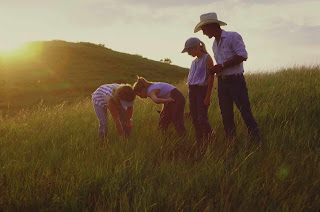
YOUNG FARMERS SHOULD MANDATE TRANSITION PLAN AND AVOID NFL This week I am told there are 50,000+ FFA members in Indianapolis for their yearly convention. I find it fitting to write this article about younger farmers who are the next generation and what happens when the older generation fails to put together a farm transition plan. Without a transition plan, I believe there is a 90% chance the next generation goes to the NFL, which stands for N ot F arming L ong. (yes, I coined this and take credit for it) Before I discuss this further, let’s look at a few things. 1. First, no one ever keeps score in farming. What I mean is that when a son or daughter returns to the farm, no one keeps track of their hours, their input, their monetary contribution, or so forth. As the years go by, no one is able to remember what all the young farmer contributed to the operation, especially the nonfarm siblings. Then, at distribution time, the dreaded “fair is equal” mental

